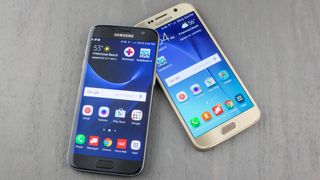The FCC is investigating Android's sluggish security roll-outs
Phone makers will have to show what's being done about security

The Federal Communications Commission (FCC) is fed up with slow security updates. The Commission joins the Federal Trade Commission (FTC) in launching an official inquiry about the state of mobile phone security patches.
"There have recently been a growing number of vulnerabilities associated with mobile operating systems that threaten the security and integrity of a user's device, including 'Stagefright' in the Android operating system, which may affect almost 1 billion Android devices globally," the organization states in a release.
The Commission has ordered eight mobile device manufacturers to provide information on how they address security vulnerabilities on smartphones, tablets and other mobile devices. The specific manufacturers aren't mentioned.
Frustrating wait
Android users are no stranger to long wait times when it comes to operating system (OS) updates. It took Samsung over four months to update last year's Galaxy S6 smartphone with Google's latest Marshmallow OS. Google has already released a preview of Android N, the next version of Android, and it's unclear whether that update will ever come to "old" devices, like the Galaxy S6.
The FCC and FTC want to know why it's taking manufacturers so long to update their phones and outright neglecting to update older phones. "There are, however, significant delays in delivering patches to actual devices – and that older devices may never be patched," reads the FCC inquiry.
Google's solution for slow updates is to offer consumers a line of Nexus devices, which will always be first to get Android's software updates. While the Android enthusiasts have always gravitated toward Nexus devices, most users purchase phones from companies like Samsung, LG, and Sony, who customize their own versions of Android to include differentiating features to stand out from the competition.
But, more importantly, these firms have left it to US network carriers to approve and disseminate software updates.
Get daily insight, inspiration and deals in your inbox
Get the hottest deals available in your inbox plus news, reviews, opinion, analysis and more from the TechRadar team.
It seems then, that Apple's walled-garden works, at least when it comes to security updates. Apple exercises tight control over its hardware and software, allowing the company to push updates quickly to all of its devices. The Cupertino-based company also has a history of updating its older devices, though it sometimes strips features from an update to keep a device current.
Shady business
On top of slow updates, Android users are constantly frustrated by pre-installed software known as "bloatware". Carriers, like Verizon, love loading up their devices with apps most of its users won't ever use.
More egregiously, Verizon released an update for its Samsung Galaxy S7 and S7 Edge devices to include an app that allows the carrier to install more bloatware whenever it wants. An eagle-eyed reddit user noticed the addition of an app called DT Ignite being downloaded to his or her phone after the update.
Thankfully, Android users can disable DT Ignite from the Application Manager. Still, it's a bad sign that carriers are still looking at forcing users into downloading apps they don't want or need.
Most Popular





